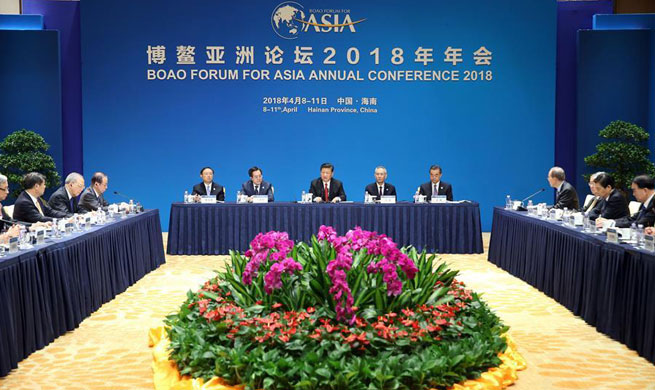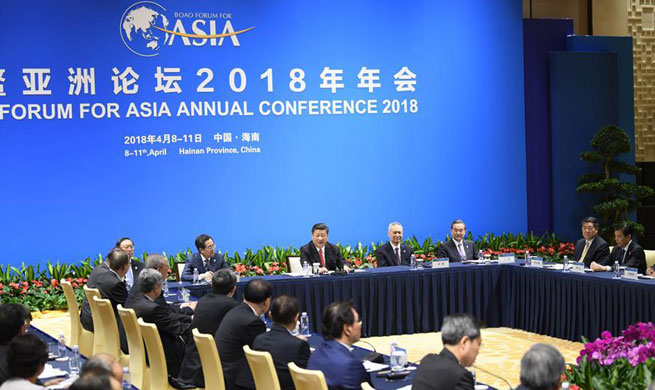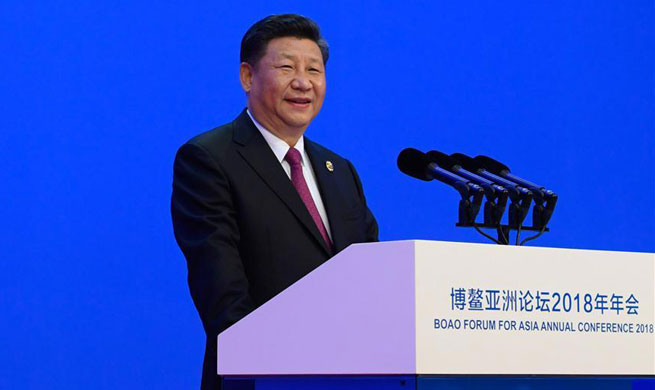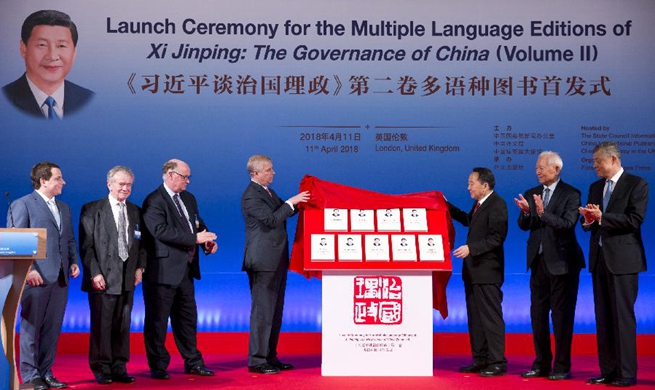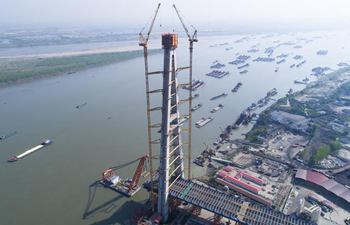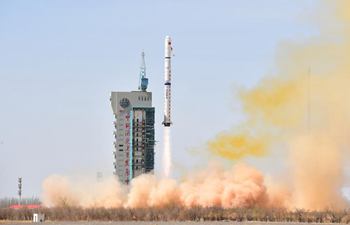ISTANBUL, April 12 (Xinhua) -- As the United States continues removing military equipment from the Incirlik air base in Turkey amid strain in bilateral ties, analysts are divided on whether the Turkey's NATO ally is considering permanently removing its forces there.
"I don't think the U.S. would leave the base (for good)," Cahit Armagan Dilek, head of the Ankara-based 21st Century Turkey Institute, told Xinhua.
Most recently, the U.S. military moved away a mobile weapons depot of 40 tons from the Incirlik base in southern Turkey at the beginning of April. According to Turkish media, this is the third weapons depot the U.S. has removed from the base.
Dilek, a former staff officer in the Turkish military, feels that the U.S. is simply aiming to bluff Turkey into acting in line with its wishes by making as if it could use Incirlik as a trump card against Ankara.
The U.S. would not think of leaving the base which is very conveniently situated for its military interventions and intelligence gathering around the surrounding region, he said.
Incirlik's location in southern Turkish province of Adana enables the U.S. to closely monitor Eastern Mediterranean, Syria, Iraq, Jordan, Lebanon, Israel and Iran.
Washington has repeatedly denied the claim that it intends to permanently move its troops out of the base, calling the speculations unfounded and underlining Ankara's importance as a NATO ally.
The day the reports about the 40-ton depot appeared in Turkish media, Johnny Michael, a Pentagon spokesman, said that such reports aimed to boost the feeling of mistrust between allies at a time when joint action was necessary for common interests.
Turkish media reported at the end of March that the U.S. military withdrew its F-16, F-15 and A-10 fighter jets from Incirlik one day before Turkey launched a cross-border military operation on Jan. 20 to remove Kurdish militia from Syria's Afrin region.
According to a report by the pro-government Yeni Safak daily on March 28, there remained only tanker aircraft, drones and three helicopters of the U.S. military at Incirlik.
The bilateral ties between Ankara and Washington have been rather strained in recent years due mainly to U.S. military support for Kurdish militia in Syria which Turkey sees as a terror group.
Murat Bilhan, vice-chairman of the Istanbul-based Turkish Asian Center for Strategic Studies, sees the U.S. move as an indication that "Washington intends to move out of Incirlik for good."
Noting there is loss of confidence between the two NATO allies, Bilhan said: "The U.S. does not any longer see Incirlik as a secure place for itself and is therefore eliminating elements that make it dependent on Turkey."
According to Turkish officials, the U.S. has provided the Kurdish militia, which it has used as a ground force against the Islamic State, with a total of 5,000 truckloads of weapons including armored vehicles.
The move has angered Ankara, which sees the Kurdish militia, known as the People's Protection Units, as the Syrian offshoot of the Kurdistan Workers' Party outlawed for its three-decade fighting against the Turkish state.
Erdogan Karakus, a former general in the Turkish air force, does not think the U.S. would want to lose Incirlik on the grounds that its use in regional operations would imply Ankara at Washington's back.
By permanently removing its forces there, the U.S. would not only lose the possibility of using Turkish air space, but would have pushed Ankara further toward Russia, he told Xinhua.
Washington's apparent unwillingness to hand over Fethullah Gulen to Ankara is another point of friction in bilateral ties, as Turkey accuses the U.S-based Turkish cleric of masterminding a military coup attempt in 2016 that left 250 people dead.
The U.S. has often been accused by Turkish media of having backed the coup bid, with U.S. officers at Incirlik allegedly involved as well in the planning of the putsch.
In addition, the Turkish move to buy Russia-made S-400 air defense system despite U.S. opposition has heightened the tension in bilateral relations.
Ankara has vowed to go ahead with the deal, while Washington signaled sanctions in response due to a recent U.S. Congress decision to punish some Russian defense firms.
From the U.S. perspective, Turkey's axis in foreign relations has shifted, said Bilhan, a former diplomat.
"Turkey is now an undependable ally for Washington," he added.
Due largely to the U.S. support for the Kurdish militia, Ankara has acted since mid-2016 more in cooperation with Moscow in war-torn Syria rather than with Washington.
"The Americans have always wanted Turkey to remain as a little ally which they could manipulate," remarked Bilhan. "That is a wrong attitude."
As the tension increases following a U.S. threat of military strike on Syria in the wake of an alleged poison gas attack blamed on the Syrian military, Washington is seeking to mend ties with Ankara, according to Turkish media reports.
The U.S. is in search of a new path in Syria that would meet Ankara's security concerns, an unnamed high-level U.S. official was quoted as saying on Thursday.










